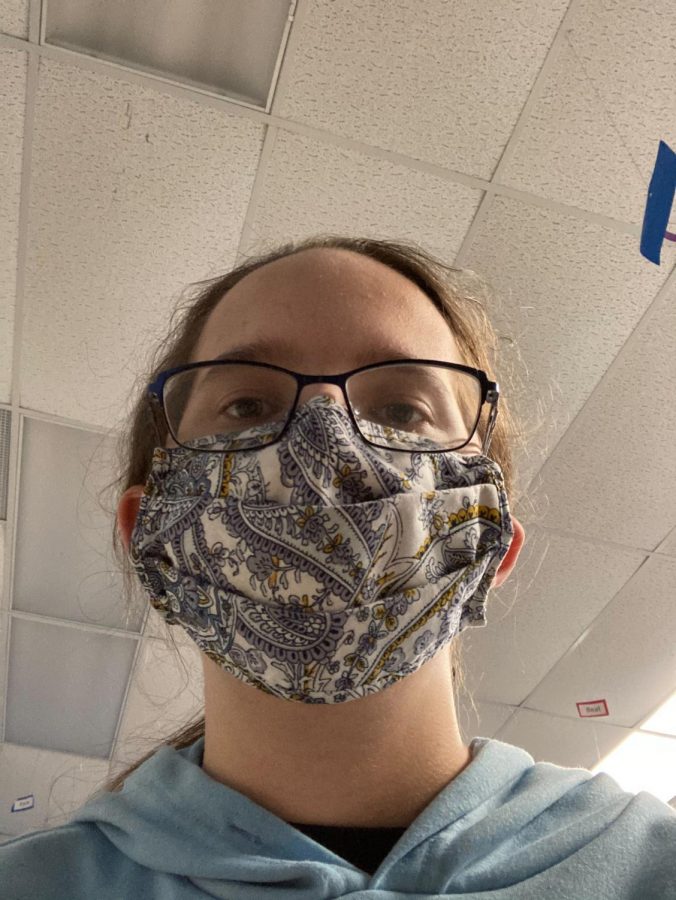Junior Lilly Blanton poses for a picture wearing her mask.
Lilly Blanton
For some deaf, Deaf, or hard of hearing students, masks have become a hindrance on communication. For others, masks are little but an annoyance, a way to slow the spread of disease. Junior Lilly Blanton is one of those individuals, who, despite being born profoundly deaf, has found herself in few situations where masks have hindered her ability to communicate.
“Sometimes meeting new people can be annoying because they’ll just start talking differently, like making exaggerated mouth motions or trying to talk louder,” Blanton said. “I have to spend a minute explaining what they’re doing, that they don’t need to do.”
Blanton relies on ear implants to increase her hearing abilities. Without the implants, Blanton is unable to hear what is happening around her.
“[Wearing a mask] has [impacted me], but not very much, I suppose I sometimes will try and look at someone’s lips to try and figure out the last thing they said was, but not often,” Blanton said.
Blanton’s hearing disability has made her more willing to advocate for herself and her needs.
“I’ve gotten used to having to stop people and explain things or raise my hand in class and saying, ‘hey, I’m just muted,’ or asking for me to get my seat moved, and so on. So it certainly made me more willing to do that sort of stuff,” Blanton said.
Blanton feels the move to relieve Deaf and hard-of-hearing individuals of wearing masks failed to help them with communication.
“[The guidelines] were funny because one of the groups of people they said didn’t have to wear a mask was hearing impacted people, except that doesn’t make any sense because, how would you read your own lips?” Blanton said.

